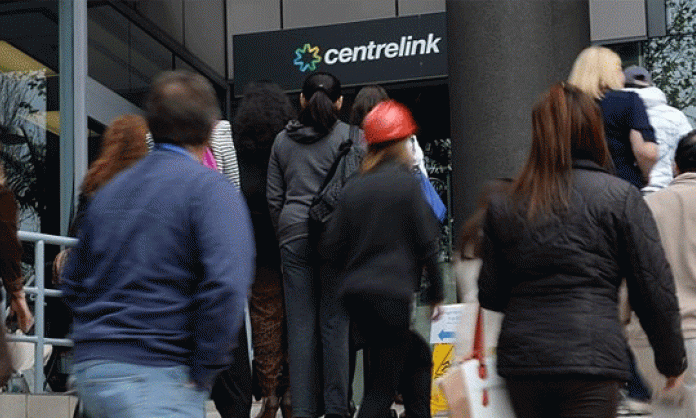The official unemployment rate for 15-24 year olds is, at 14 percent, the highest since 1998. The unofficial rate, taking into consideration under-employment and those who have simply given up on looking, is much higher.
Yet the Liberals’ planned changes to the welfare system single out young people for special punishment.
Perhaps the most significant change is a dramatic expansion of work for the dole. Under the government’s plan, unemployed people aged 18-30 will be forced to work 25 hours a week to continue receiving Newstart payments. Based on the current rate, this works out to a “wage” of just $10.31 an hour for a single person with no dependents.
Work for the dole is currently limited to not-for-profits, charities, local councils and government agencies. But the private sector is keen to get in on the scheme. In February, the chief executive of the Australian Chamber of Commerce and Industry, Kate Carnell, said: “We think the program should be expanded into small business.”
The aim, according to Carnell, is to teach skills such as “how to make coffee or serve customers” – “a real win for young people”, as she puts it.
The fact that so many young people struggle to find work apparently has nothing to do with the lack of available jobs. Rather, it’s because they don’t know how to make a sandwich or mop the floor.
Carnell’s real agenda is revealed by the fact that she also argued for unfair dismissal laws to be watered down to make it easier to “hire and fire”. There’s nothing like a period of super low-wage forced labour, followed, if you’re lucky, by a job from which you can be fired at the drop of a hat, to really give young people a leg up.
Research conducted by University of Melbourne economists Jeff Borland and Yi-Ping Tseng in 2004 found that those who participated in work for the dole were actually less likely to find a job than those who didn’t. Could it be, perhaps, that spending 25 hours a week doing soul-destroying make-work might get in the way of doing the kind of things that might genuinely improve your chances in a competitive job market?
Work for the dole is no doubt a “real win” for some. But it’s certainly not for the unemployed.









